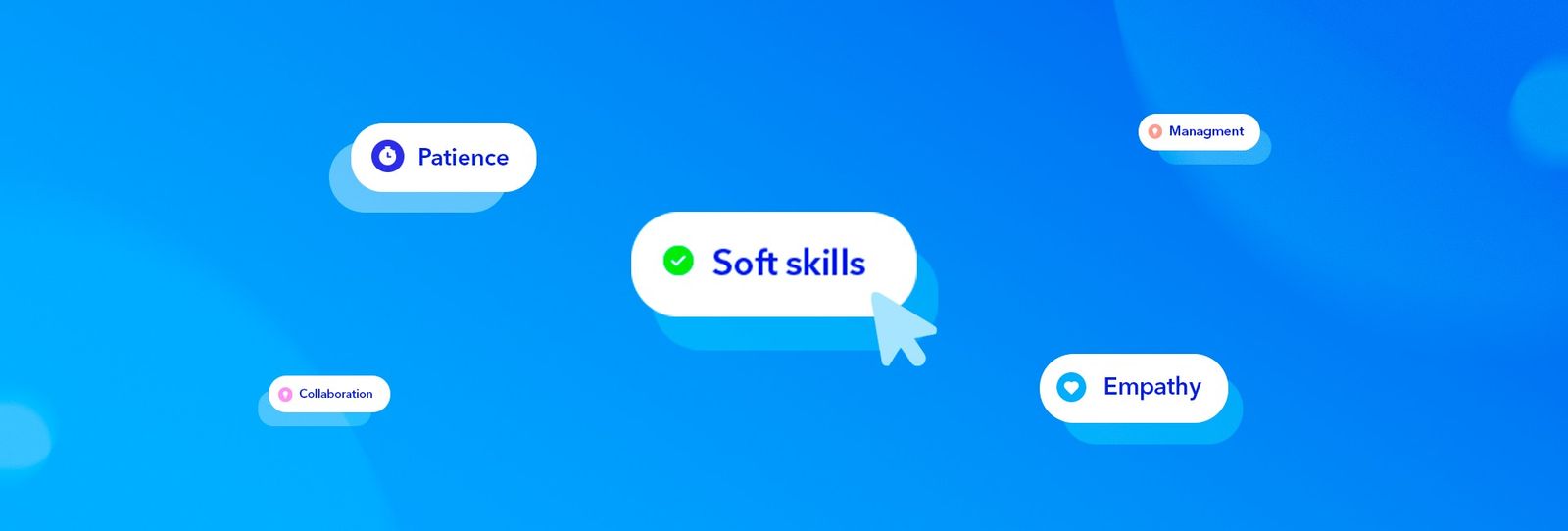Every career benefits from soft skills, and developers are no exception, despite existing stereotypes. While you may have all the desired technical skills for the job market, you are unlikely going to land your dream job if you don’t dominate a good set of soft skills. As a Talent Acquisition Coordinator, I have witnessed what assets make great developers perform well in their jobs. While your technical skills can get your foot in many job interviews, your people skills are what open most of the opportunities and close the deal.
At last, how can you produce quality results if you don’t know how to be a good team player?
Here, I present you some of the most important soft skills we look for in possible candidates for developers' positions:
Communication.
Seeing this at the top of the list may seem like a broken record, but there is a logical reason why it never leaves the list of top soft skills. Every working environment involves human interactions, and great effective communication helps to ensure everyone is aligned with project requirements, expectations, deadlines, and other relevant aspects of the working project.
You should portray confidence and express with clarity your ideas, while also respecting your co-workers' perspectives. Being a great and attentive listener is also a trait of a good communicator.
Emotional Intelligence and Empathy.
Developers are praised for being right-brained and seeing everything through their logical lens, but emotional intelligence is a valuable ability to recognize, understand and manage your emotions and the emotions of others. It involves being able to use emotions to guide thoughts and behaviors effectively and to manage relationships in a positive and empathetic way.
Software developers’ tasks can be frustrating at times, and if you can’t control your reactions toward these scenarios - your negative emotions will ruin your project’s outcomes and your relationship with your teammates.
Besides your work colleagues, developers must communicate clearly to their non-developers peers, clients, and end-users of the product. To do so effectively, they have to find empathetic ways to communicate with them clearly for the success of the project.
Self-awareness.
Self-awareness is a great trait for developers to have because it allows them to self-identify areas for improvement without disregarding their current knowledge.
This enables them to confidently express their opinions and doubts, making them more likely to grow professionally. By not letting insecurities and egos hold them back from learning and recognizing their mistakes and areas of improvement, they can do the work to learn new skills. This attitude drives them to take more initiative within the workplace and increases their competence.
Time management.
As a developer, you'll need to keep project managers, business managers, and other officials updated on the progress of the product you're working on. Your goal is to deliver satisfactory results to the client on time. To achieve this, it's important to have great time management skills. Make sure you're realistic and accurate when estimating how much time it will take you to complete your tasks on schedule. This way, you can keep your word and build trust with others.
By having good time management skills, you can also increase your productivity and efficiency, which can lead to better performance and results.
Although technical skills are important, they alone are sometimes insufficient for landing your dream job. A good set of soft skills can open up more opportunities and help developers excel in job interviews and new roles. Therefore, developers need to invest time in developing and honing these soft skills to become well-rounded professionals in the industry.
We've touched on some of the most essential soft skills for developers to have, but there are many more we consider in the recruitment evaluation process. If you want to ace your next job interview, stay tuned to this blog series "What a Dev Needs," where we dive deeper into these topics and explore other important factors to look for during the recruitment process.


